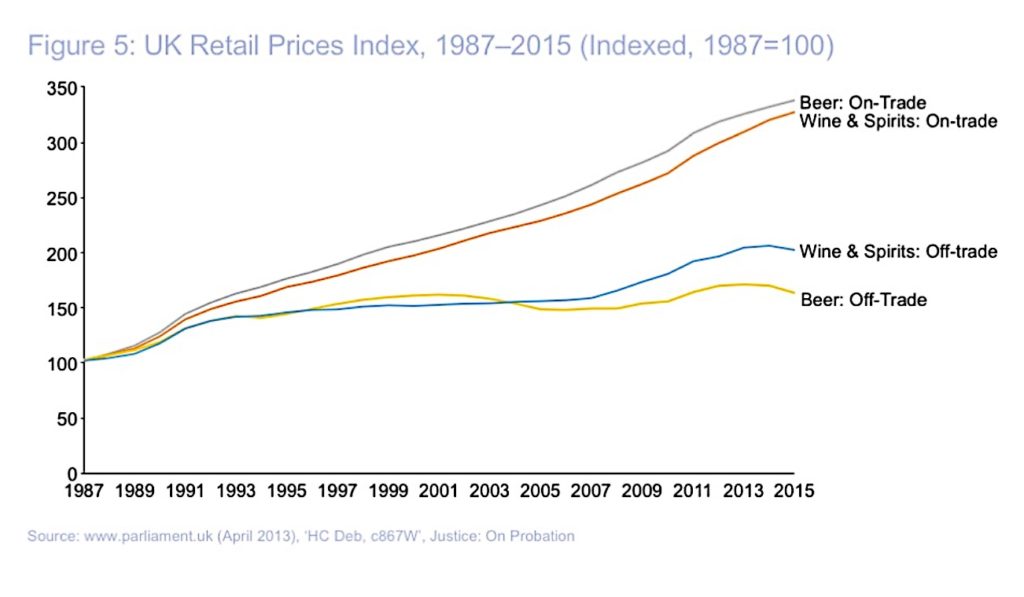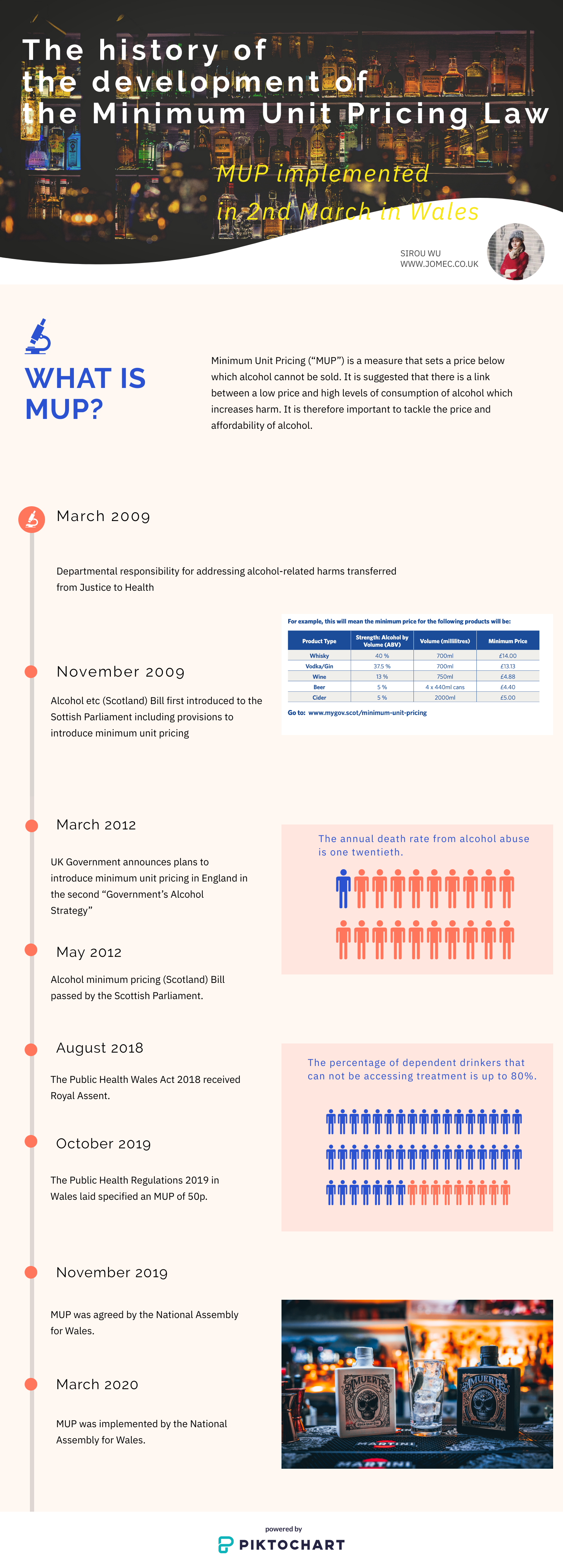The Welsh government implemented the Minimum Unit Price Law on 2nd March. Is this an effective way to stop more people from drinking heavily?

George feels worried about the minimum price for alcohol implemented recently in Wales. He thinks that the bill looks like it could reduce the consumption of alcohol, but in fact, raising the cost means that it’s putting people with less money at greater risk, and it will lead to a worse situation.
“I’ve seen some people turn to hard, class A drugs when the alcohol no longer cuts it for them, or they can’t afford it. I’ve had a friend of the family died about a year ago due to drug use,” said George. Therefore, he also strongly opposed the same minimum price law introduced in Scotland in 2018.
According to public health Wales, alcohol misuse is a significant threat to public health in Wales. It has been identified as a causal factor in more than 200 medical conditions. In order to solve the problem of alcohol abuse, the price of alcohol has increased by almost 30% over the last ten years in the UK.

There is already a substantial tax on alcohol. However, Public Health Wales Observatory revealed that there were more than 70,000 alcohol-related hospital admissions in Wales in 2017-18. The increase in alcohol prices seems to have little effect.
Some people argued that it would reduce living standards for those on low incomes. “There are many people in my life who have had alcohol dependency issues, and none of them would be dissuaded by the rise in cost. They’ll be prioritising alcohol over food or even rent and utilities,” said Micheal, a member of the campaign against the minimum unit price law.
Furthermore, a survey conducted by the NHS shows that the more money people earn, the more likely they are to drink alcohol, with around 90% of people living in wealthy areas drinking. According to an addiction charity, the new minimum price for alcohol is not sufficient to tackle middle-class drinkers.

“Alcohol issues are far more complex than just price. The government should have tried to target the real problem and reform its mental health and rehab services, which have all been under severe cuts in the last ten years,” said Geroge.
According to public health Scotland, there is a fall of almost 20% in treatment at specialist alcohol misuse services in the last five years, and up to 80% of dependent drinkers are not accessing treatment.
Also, a report by the Alcohol Institute on alcohol and mental health shows that alcohol is rarely mentioned in policies, including the Five-Year Outlook for Mental Health. It recommends that the government develop a comprehensive alcohol strategy for England, including service-level actions against alcohol hazards, to ensure that more people are effectively assisted.

“Treatment might be the best course of action. Those suffering from alcoholism can receive treatment for their addiction with the help of medical professionals during recovery and can be educated on how to avoid alcohol in the future,” suggested by Sandra, a staff of Alcohol Change Wales.

